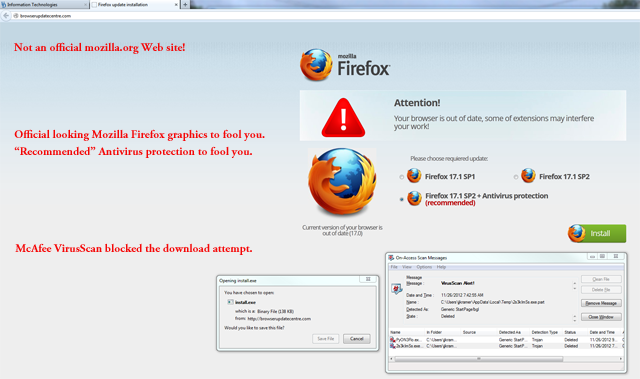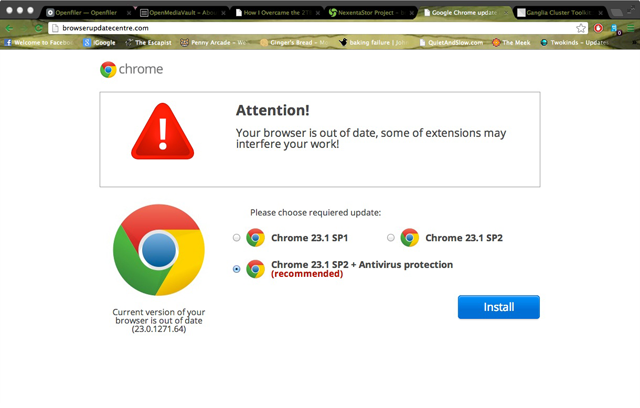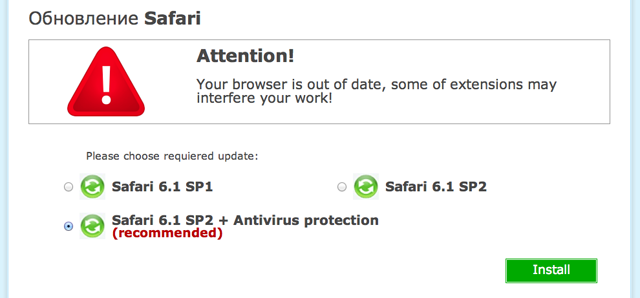Be alert for browser update scams
IT has received several reports of University computer users seeing pop-up windows and redirects to fake "update your Web browser" pages that can download malware onto your computer. Reports indicate that these fake pages may be appearing as a result of counterfeit or corrupted ads when you visit an otherwise legitimate site.
Internet Explorer (IE) users report that IE is catching this threat automatically.
To keep up with the latest security patches, it is important to keep your Web browsing software (Firefox, IE, Chrome, Safari, Opera, etc.) current. However, you should only trust updates from official sources:
- An update notification from within your computer's Web browsing software,
- An update notification from your computer operating system's auto-update function,
- An update you have downloaded from the Web browser's official Web site.
Sample scams
Screen shots submitted by three UD departmental computing professionals are shown below: one each for Firefox, Safari, and Chrome. Click each screenshot to see a larger version.
Firefox

Comments:
- As noted on the screenshot, browserupdatecentre.com is not an official Mozilla Web site.
- Copying the official graphics and putting them on a counterfeit site is a common trick. Always check the URL of a site before downloadning any software.
- You should use antivirus software, but don't fall for the reminder on this counterfeit site. If you need antivirus software, download and install McAfee VirusScan, licensed for members of the UD community to use.
- In this screenshot, McAfee VirusScan identified the threat and deleted the files.
Chrome

Comments:
- Browserupdatecentre.com is not an official Google Chrome Web site.
- Copying the official graphics and putting them on a counterfeit site is a common trick. Always check the URL of a site before downloadning any software.
- You should use antivirus software, but don't fall for the reminder on this counterfeit site. If you need antivirus software, download and install McAfee VirusScan, licensed for members of the UD community to use.
Safari

Comments:
- The cyrillic characters and broken English should make this counterfeit site easy to spot. Download Safari only from apple.com (Windows and Apple Macintosh computers) or Software Update (Apple Macintosh computers).
- You should use antivirus software, but don't fall for the reminder on this counterfeit site. If you need antivirus software, download and install McAfee VirusScan, licensed for members of the UD community to use.


